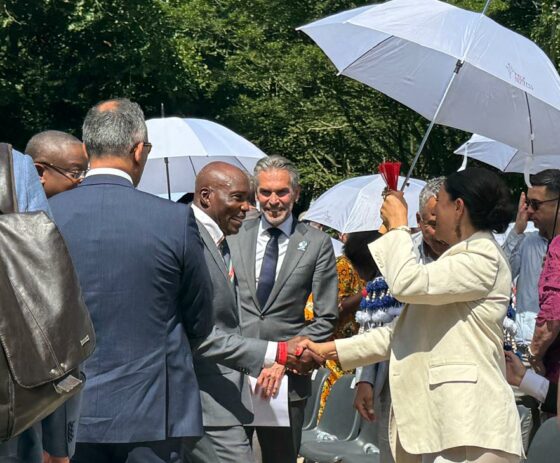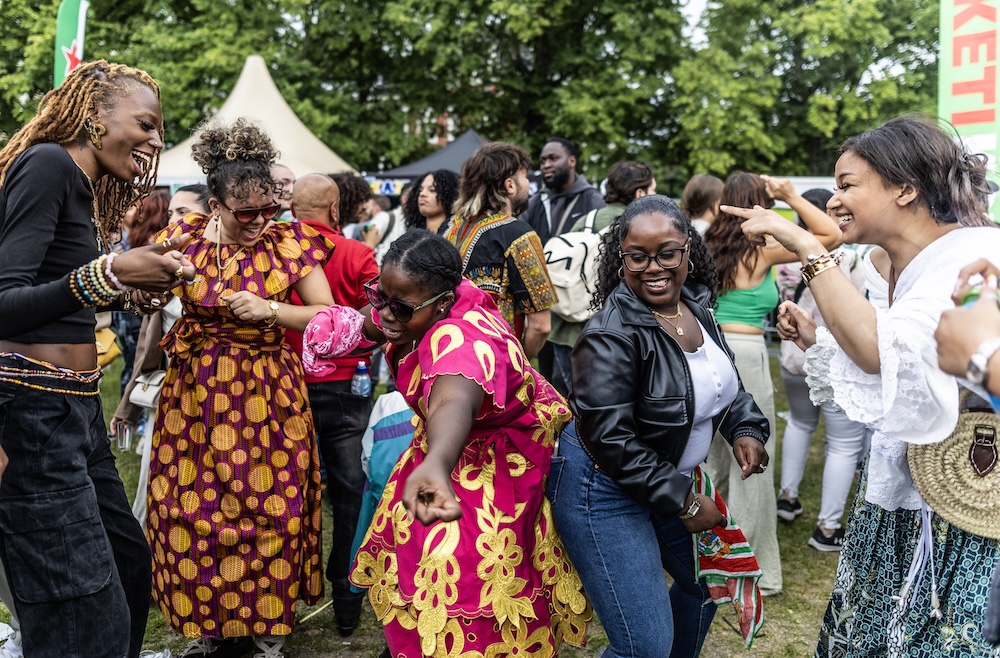Two years after national apologies for slavery were made by the king and prime minister, campaigners and politicians at a packed and sweltering Keti Koti event on Tuesday said it was time for action.
As well as bright clothing and stirring music, there was a sense of frustration among many guests at the annual memorial on July 1 to mark “breaking the chains” of slavery at the Oosterpark in Amsterdam.
Slavery was formally abolished in the former colonies of Suriname and the Dutch Antilles on July 1, 1863, ending a period of around 200 years. However, slaves in Suriname were only fully freed in 1873, since the law stipulated that there was to be a mandatory 10-year transition period.
Reparations
Former prime minister Mark Rutte had said an apology in December 2022 and another by king Willem-Alexander in 2023 would be “a comma not a full stop”, but none of a €200 million awareness fund has yet been spent.
Silveria Jacobs, the former prime minister of former Dutch colony Sint Maarten, said it is now time for financial compensation. “In reality, we on Sint Maarten have simply come to terms with the fact that while this is one tiny step forward, we really inch backwards depending on who we’re dealing with,” she said.
“The reality of the increase of power of the right in Western countries is a threat to progress in filling in what comes after the apologies in a way that is meaningful for the descendants of the enslaved. Two and a half years later, what has been achieved? From my perspective as a Sint Maartener not very much.”
Jacobs pointed out that no mention has been made of the moral obligation of the Dutch government to execute reparatory justice, repair and to make space for healing for the damage caused by slavery.
“Neither has any mention been made on how we would be compensated for the harm and the loss that we continue to experience to this very day, to the resulting development deficit we experience,” she said. “This remains the proverbial elephant in the room.”
Torture
The chairman of the Dutch parliament normally attends the event, but the PVV’s Martin Bosma was again absent this year – although the crowd was invited to extend greetings to all and “give a big clap for those who do not see how important this is”.
Caretaker prime minister Dick Schoof raised some boos as well as brief applause. With national and local elections coming up, all of the Amsterdam executive was present, alongside MPs, senators and councillors.


Several hundred official guests attended, with water and white umbrellas to protect them from the heat, and hundreds of members of the public watching the ceremony under the shade of trees. The event including rituals, music and the laying of wreaths had been moved to earlier in the afternoon than originally planned.
During its “golden age”, the Dutch shipped more than 600,000 enslaved African men, women and children to the American continent and traded between 660,000 and one million people in Asia under the authority of the Dutch East India Company.
Resistance
Femke Halsema, mayor of Amsterdam, won most applause at the Keti Koti event talking about Surinamese Maroon leader Boni – who had escaped from slavery and led resistance efforts – Black Lives Matter protests around the world, and the need to tackle racism as a political priority.
“Slavery is a crime against humanity, and here in Amsterdam its traces are everywhere,” she said. “On the Amsterdam canals, the houses tell the story of how the city became rich…The battle that Boni began has not ended. The history of transatlantic slavery affects affects us all.”
Among the crowd, some visitors said there was more to do, such as creating a museum of slavery and finding good uses and causes for the government education fund. Linda Nooitmeer, former chairwoman of the National Institute for the Study of Dutch Slavery and its Legacy (NiNsee) said it was a process. “Hope is always good but hard work is better,” she told Dutch News.
Future
Senator Gerdi Verbeet said that it was important to recognise and remember this part of Dutch history. “As society, you have a history, and you need to remember it as a whole,” she told Dutch News. “You need to see it in its totality, and we have not always done that.”
Wendeline Flores, vice chair of NiNsee, said in a speech that when she grew up it was hardly talked about. “My first conscious encounter with the Netherlands’ transatlantic slavery past took place in secondary school, just a single paragraph in the textbook,” she said. “A footnote in the national history…
“Today we bow our heads in memory, and tomorrow we lift them up in action. Because the job isn’t done yet, and the future needs the power of all of us.”
